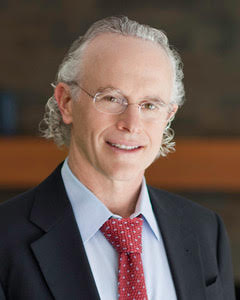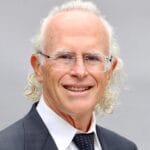
The year was 1985. I was an intern in the cardiac intensive care unit at Cedars-Sinai Medical Center. A man who was the well-known voice for several animated television characters was laying on a gurney.
I remember it like it was yesterday. He was smiling and talking, despite the fact that he was having a heart attack. Something inside me knew that he wasn’t going to make it through the night. I’m sorry to say, I was right. That was one of the first times that I realized that I had a well-honed sixth sense about the clinical condition of my patients. Being a geriatrician, caring for highly complex patients comes with the territory. Over the years, many of my patients knew that as much as I hated acute hospitals, if I told them they needed to be admitted, it was for a good reason.
My clinical sixth sense
I never expected my clinical sixth sense to apply to my “administrative” roles. But it has. Over the years, as a nursing home medical director, there were occasions that I told my administrator that we could not admit patients. I always listened to my gut.
As a medical director, I have a responsibility for the clinical care in my nursing homes. I’ve always taken that responsibility seriously. A couple of years ago, I took on an even larger administrative role, as the CEO of a large nursing home chain. I had received some reports from one of our facilities that concerned me. It wasn’t just the things that the surveyors had found. My clinical instincts took over and the more I learned, the more the feeling of concern rose inside of me. I immediately took action, and literally threw every resource in our organization at the facility in terms of support. We ultimately averted a far more serious situation. I’ve often wondered how a non-geriatrician CEO would have had any clue regarding the serious nature of the situation.
Hearing alarm bells
When I saw the report of a death and the finding of COVID-19 at a nursing home in Washington state, my internal sensors started ringing. As medical director for Eisenberg Village, at the Los Angeles Jewish Home, I care about the residents for whom I am responsible. Fortunately, I am also surrounded by facility leadership that cares even more than I do. They adhere strongly to the concept of “doing the right thing.” My clinical instincts were telling me that COVID-19 was a nursing home resident killer. While younger people will probably do ok if they come down with this virus, we can not say the same for frail older adults and other immunocompromised people.
There is a more insidious reason that we should have major concerns about the impact of COVID-19 in nursing homes. The frontline staff in nursing homes are rarely paid a living wage. A lot of them work more than one job. Many of them live paycheck to paycheck. They are the most impressive human beings that I’ve had the privilege of working with, but in the case of COVID-19 I’ve been concerned that their incredible work ethic, combined with a fear of losing income, might cause them to come to work sick. We can not let that happen!
Step up our game
I would like to challenge the nursing home industry to do whatever it takes to make sure that frontline staff do not come to work sick. This will probably mean assuring that frontline staff has adequate sick leave, no matter the cost to the facility or the nursing home chain. Similarly, COVID-19 should not be used as an opportunity to save on staff expenses by not replacing those who are out sick or quarantined.
The nursing home industry will ask for waivers due to the possibility of not achieving minimum staffing levels. That’s the wrong direction. Inadequate staffing levels are not conducive to delivering quality care to the residents. Instead of asking for a reprieve, the industry needs to step up its game and make sure that there are enough staff to care for the residents that they serve.
I know that the nursing home industry already faces staffing shortages. These existed before COVID-19. The industry is definitely challenged by a limited workforce. Perhaps the fact that the frontline staff often doesn’t earn a living wage has something to do with this. But now isn’t the time to argue these points.
There’s only one thing that matters right now. We MUST keep sick staff out of nursing homes. We MUST make sure that there are an adequate number of staff to care for the residents. For staff who have a fever or cough, or have that “viral” feeling, stay at home and save a life! For nursing home administrators and leadership of nursing home chains, “do the right thing,” and find the necessary staff to care for the residents.
My clinical instincts have always served me right. I hope and pray that I turn out to be the “geriatrician who cried wolf.” In the meantime, however, I hope that anyone who reads this article takes it seriously. Tell any staff who might be sick to stay home and save a life. The lives of nursing home residents are at stake.
Michael Wasserman, M.D., CMD, is a board-certified geriatrician, certified medical director, president of the California Association of Long Term Care Medicine, and medical director, Eisenberg Village, Los Angeles Jewish Home.




